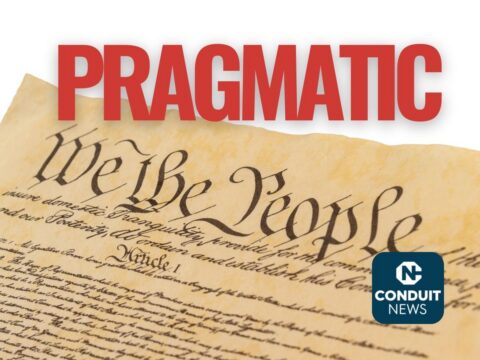A federal judge on Wednesday permitted two ballot question committees to join an existing lawsuit from the League of Women Voters of Arkansas that challenges the constitutionality of new direct democracy-related laws.
Protect AR Rights and For AR Kids, ballot question committees attempting to qualify separate proposed constitutional amendments for the 2026 ballot, filed a motion to intervene in the League’s existing lawsuit in May.
The League has asserted the new state laws are burdensome to efforts to collect signatures for its ballot measure aimed at protecting direct democracy in Arkansas.
Supporters of the laws have said they ensure the integrity of the states’ initiative and referendum process.
Direct democracy is the process by which Arkansans can propose new laws or constitutional amendments and place them on the ballot for a statewide vote. Arkansas is one of 24 states that allow citizen-led initiatives, according to the National Conference of State Legislatures.
Attorney General Tim Griffin certified the League’s ballot title in May, but has twice rejected a similar proposal by Protect AR Rights. Griffin approved For AR Kids’ education-related measure in February.
The motion to intervene from Protect AR Rights and For AR Kids seeks to challenge laws not included in the League’s suit — Act 602 of 2025, which prohibits ballot titles from being written above an eighth-grade reading level, and Act 236 of 2023, which mandates petition signatures must be collected from at least 50 counties instead of 15 as directed in the Arkansas Constitution.
Both the League and the lawsuit’s defendant, Secretary of State Cole Jester who’s represented by Griffin, opposed the motion to intervene in court filings.
U.S. District Judge Timothy Brooks disagreed Wednesday with their assertion that Protect AR Rights and For AR Kids lack standing. In a six-page ruling, Brooks rebuts the assertion that harm posed by the reading-level law is “merely hypothetical,” noting that since that argument was made in court documents, Griffin cited that law in his rejection of Protect AR Rights’ measure.
Brooks also addressed the argument of lack of standing for Act 273 of 2025, a law challenged by the League that would disqualify signatures collected by canvassers if the secretary of state finds “by a preponderance of evidence” that they violated state law collecting the signatures.
The state asserts that injury under the provision is “too remote and speculative” because the committees would have to collect the requisite signatures and have enough rejected signatures to disqualify the measure from the ballot.
Citing a South Dakota case in which the Eighth Circuit appeals court held that a ballot question committee had standing to challenge a similar law, Brooks said the Arkansas law “uses the threat of invalidating voter signatures to force compliance with laws that reduce that number of people willing and able to circulate petitions.”
“This works a concrete and particularized injury on [ballot question committees], which must endeavor to comply with these laws even if their petitions are not ultimately thrown out,” he wrote.
Regarding the motion to intervene, the League and the state both argued that Protect AR Rights and For AR Kids “are adequately protected by the existing Plaintiffs,” Brooks wrote. The League also asserted that the groups’ interest in the case is contingent on future events that may not occur.
“For the same reasons the Court rejects Plaintiffs’ standing argument, it concludes that Movants do have an interest in this litigation based on the burden the challenged laws allegedly place on Movants’ protected speech,” Brooks wrote.
While the court agrees that wanting to add more claims and defendants to existing litigation doesn’t demonstrate inadequate representation, “Plaintiffs make a troubling assertion in their Response that leads the Court to conclude that Movants’ interests may not be adequately represented,” Brooks wrote.
The League argued in its complaint that this isn’t a partisan issue. But in its response, the League asserted it would be prejudiced if Protect AR Rights intervenes in the case because the group wants the laws blocked to increase the chance of its measure qualifying for the ballot. Protect AR Rights’ measure “directly competes” with the League’s, according to court documents.
Protect AR Rights and For AR Kids argue that the League’s attack on the substance of Protect AR Rights’ measure “raises serious doubts” that the League will “vigorously pursue” the ballot question committee’s common claims if the League determines later that it can qualify its measure for the ballot without challenging some of the laws, according to court documents.
“The Court agrees and finds that Movants are entitled to intervention,” Brooks wrote.
Little Rock attorney David Couch filed a motionon behalf of the League last week for a temporary restraining order and preliminary injunction in the case. Now that the judge has granted the motion to intervene, Couch said he expects Protect AR Rights and For AR Kids will file their own motion to block the laws. The judge will likely schedule a hearing on the motions soon, he said.
“We’ll work together as a team because the ultimate goal is to have these laws enjoined, and it’ll be up to the AG to raise whatever legal defenses they have to their issues at this point in time,” Couch said. “As far as I’m concerned, the judge says they’re on my team, they’re on my team.”
The motion to intervene was filed by the American Civil Liberties Union of Arkansas, Elias Law Group LLP and Shults Law Firm LLP on behalf of Protect AR Rights and For AR Kids. John Williams, legal director of the ACLU of Arkansas, said in a press release Wednesday that he was pleased with the court’s decision, which “ensures that the voices of grassroots groups actively engaged in the ballot initiative process will be fully represented in this case.”
“Our clients are already feeling the impact of these unconstitutional laws, and now they’ll have the opportunity to stand up in court and defend the First Amendment rights of all Arkansans who seek political change through direct democracy,” Williams said.
Griffin said in a statement that the judge’s decision doesn’t affect his defense.
“I respect the court’s decision, which doesn’t change our defense of the State. I remain steadfast and confident in our case,” he said.
BY: ANTOINETTE GRAJEDA – JULY 23, 2025 5:43 PM




